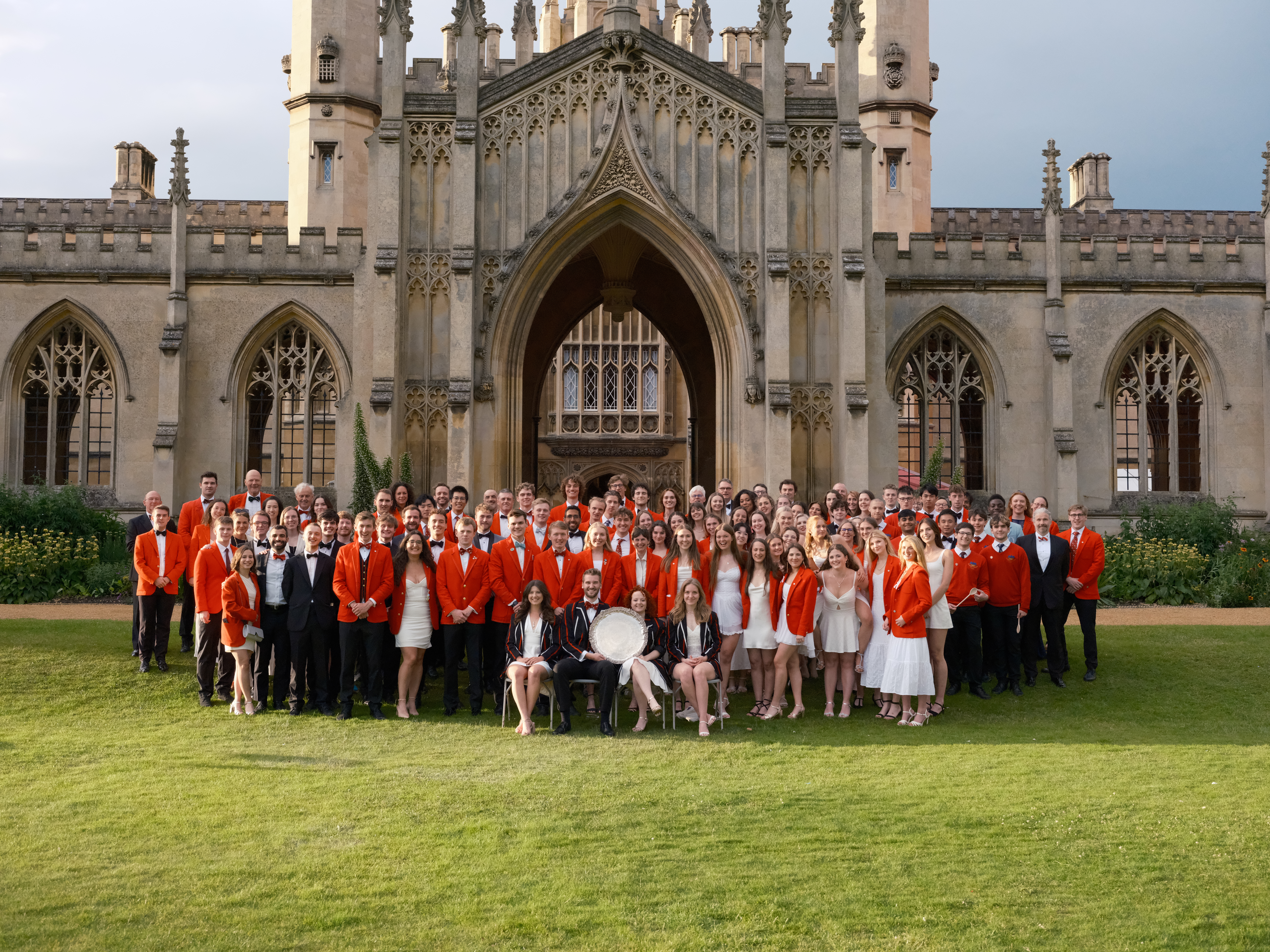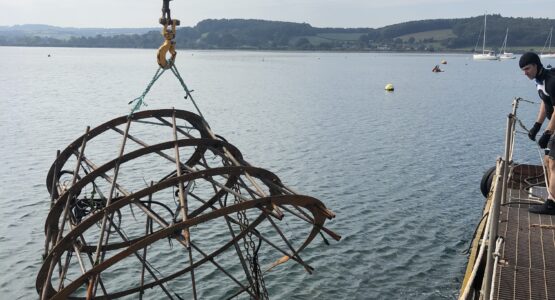The Marguerite 2025
Hydrogen energy markets and Wimbledon tennis courts

Zara Man (2023, Land Economy)
Johnian Society Access Exhibition
Mainwaring Education Trust Scholarship
Land Economy allows me to explore the inextricable nature of global economics, law and the environment when analysing complex and multifaceted socio-economic issues. The integration of different academic fields under the Land Economy Tripos has also inspired my interests in ESG (environmental, social, governance), sustainability and renewable energy from the perspective of financial services, assets and investment. My ability to identify niche, sustainable investment opportunities and use new technology to synthesise data has led me to secure internship positions at HSBC, IBM, Savills, Clifford Chance and the Wimbledon Championships this year, many of which extended returning offers.
I have always endeavoured to be an innovative individual who perceives new challenges as learning opportunities. As a proud Johnian and a grateful recipient of the Mainwaring Education Trust Scholarship and the St John’s Bursary, I have an additional drive to make St John’s proud of my ambition to contribute to tangible change in a world facing the contemporary challenges of decarbonisation and digitalisation. Thus, alongside my degree and internships, I have recently written a paper on the investment opportunities and challenges of the UK’s hydrogen energy market; this has struggled to attain the same market maturity as other renewables, such as solar, wind and batteries, with hydro only contributing to 1.4% of the UK’s total renewable energy portfolio, including high production and capital costs, the energy intensive nature of production, storage and transport issues, grid feasibility and a lack of established infrastructure.

My time at Cambridge has honed my analytical skills to study policy issues and find economical, equitable and justified solutions through quantitative and qualitative analysis. My research on the factors inhibiting hydrogen deployment – and why both private and public investment is necessary for hydrogen to reach market maturity – was largely written from the perspective of how an established hydrogen market offers the opportunity to decarbonise the largest emitting sector of greenhouse gases in the UK: transport. The transport sector was the highest emitting sector of greenhouse gases in 2021, producing 26% of the UK’s total emissions due to a rise in activity following the global COVID-19 restrictions. However, investment into the increased deployment of hydro-powered vehicles would enable the decarbonisation of the transport sector and push the UK closer to its net-zero target by 2050.
Hydrogen is also considered crucial in decarbonising sectors that are difficult to electrify, such as industrial manufacturing, aviation, shipping and long-haul transport. Its growth will be important for satisfying international agreements of net-zero, lowering a reliance on finite fossil fuels amid geo-political uncertainties, and will also foreshadow a holistic improvement to the UK’s contribution to climate change. However, deterrents of investment into hydrogen-energy are the large capital costs of production and transport facilities to enable the large-scale electrolysis required to produce hydrogen and transport it from production sites to end users.
Alongside my academic studies, I am a competitive tennis player who has competed at a national level and represented my county of Yorkshire. I am a member of the Cambridge Women’s Blues Tennis team and have represented St John’s in Cuppers as the first-seed for the College. Tennis highlights of this year include helping the Cambridge Blues Team win their first ever National Trophy and being promoted to the Premier South division in British Universities and College Sport (BUCS). It has been an honour to be selected to represent the Cambridge Blues Women’s Team, and I hope to help lead the team to further success as the 2024/25 Blues Captain. I am incredibly proud of being elected to this role, and I hope that with this position (and the additional privilege of sitting on the Cambridge University Lawn Tennis Club Committee) I can improve the accessibility of tennis within the University and lead the Blues team to more victories!

During this summer I was selected to be an IBM data statistician at the Wimbledon Championships, which allowed me to incorporate my academic passions for data analytics with my love for tennis. Having been invited to Wimbledon as a member of the Cambridge Blues team for the honorary tournament against the All England Lawn Tennis Club (AELTC), returning to work at the All England Club for the Wimbledon Championships amplified the aura of the tournament that initially inspired me to play competitive tennis.
As a data statistician I used coding software and managed IP infrastructure to chart match data in real time for media use by global broadcasting centres. Due to high performance during the fortnight of the championships, I was also selected to be one of the statisticians for Wimbledon Ladies Finals Day, which was a great privilege. Having endured this high-pressure and demanding environment while utilising new technologies, I was able to expand my technical ability of using coding software and succinctly analysing data under time pressure.

This exposure to different technologies and data analytical software gave me a different perspective on analysing financial market trends. I have since written a paper on how the development of ESG market trends in real estate markets are influencing tenants and occupiers by analysing data on how ESG standards and the low-carbon transition has affected asset prices and investment patterns. Qualitative data was also considered on how international agreements such as the Paris Agreement, COP16 and COP26 have made tenants more aware of the pertinence of climate change, thus leading to the tendency for them to value commercial real estate with higher ESG standards and sustainability considerations.
Cumulatively, the quantitative and qualitative data concluded that higher rents and premiums are being generated from more ESG-considerate real estate in 2023–24, demonstrating the low-carbon transition. What has motivated me to continue researching (and to pursue further academic opportunities in addition to my degree) largely includes the inspiration I gain being surrounded by the excellence of Johnian students, Fellows and alumni. Collectively the St John’s community embodies tenacity and continues to motivate me to push the boundaries of my abilities.
The support from the St John’s Bursary and the Mainwaring Education Trust Scholarship has been the catalyst for my academic, personal and sporting growth by giving me the financial relief to afford living costs while partaking meaningfully in Blues Tennis and excelling in my studies. The generosity of Johnian donors has been paramount to my success thus far at Cambridge, and I am eternally grateful for their support, which has propelled me to become the driven, compassionate and ambitious individual I am today.





